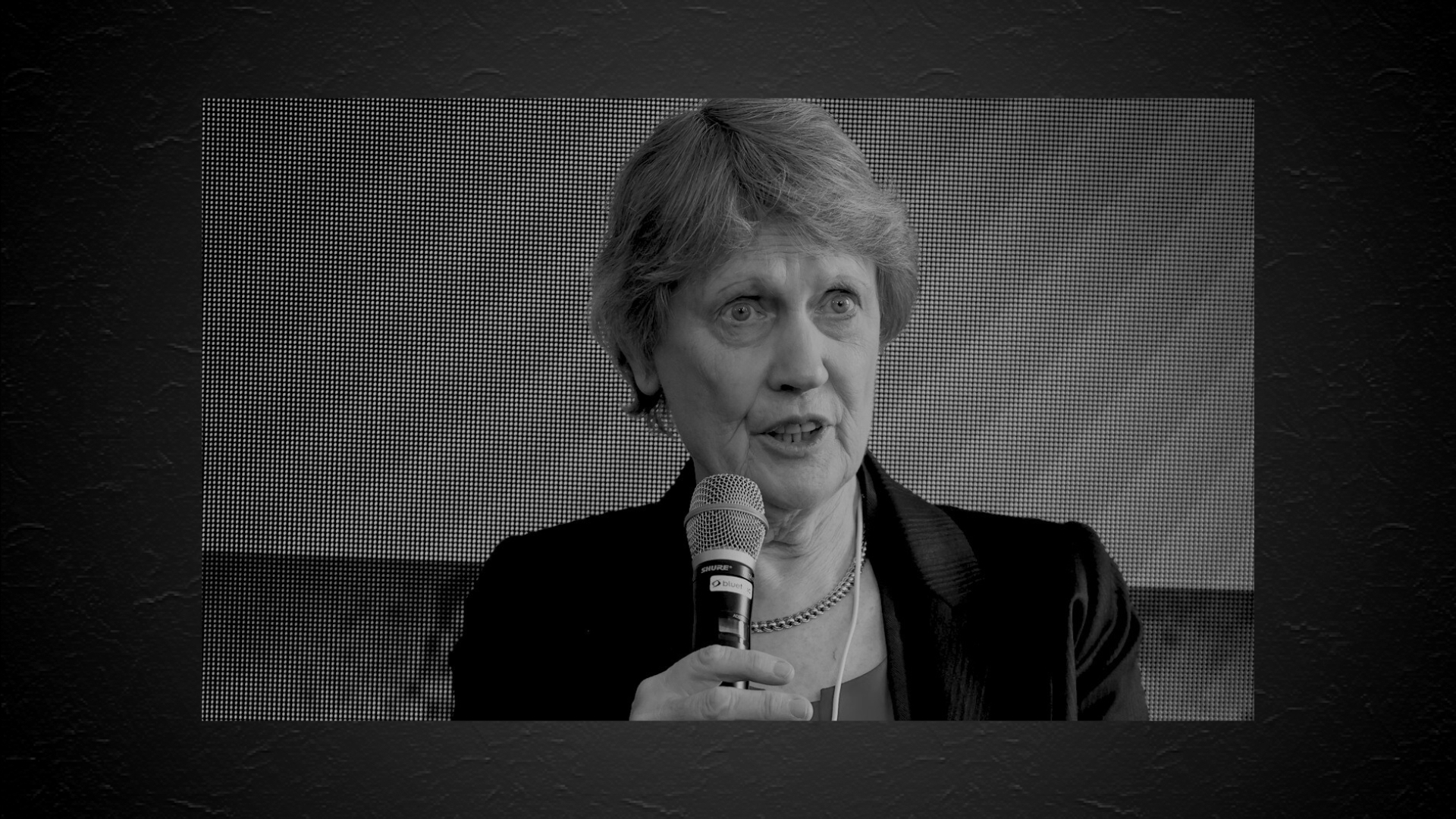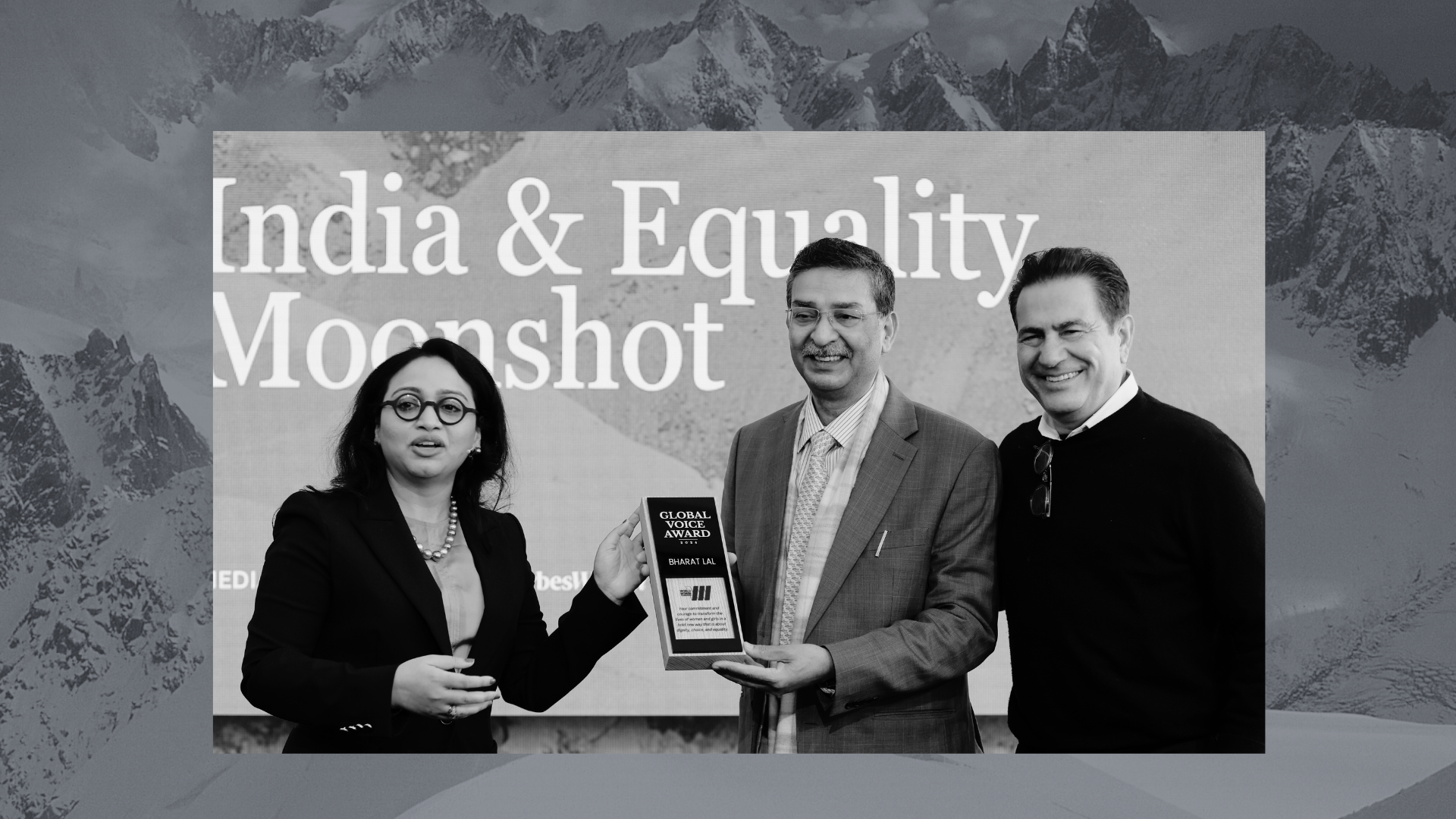 In an era characterized by unprecedented interconnectedness and collaboration, the necessity of global cooperation to confront our most formidable challenges has never been more apparent. At the forefront of this collective endeavor lies the pivotal role of women-led initiatives. Recently, the World Women’s Davos Agenda brought together a distinguished panel of trailblazing leaders to delve into this vital subject. Among them were Florence Gaub, Director of the Research Division at NATO Defence College; Kristen Edgreen Kaufman, Deputy Commissioner of Public-Private Partnerships & Economic Development at New York City Mayor’s Office for International Affairs; Arancha González, Dean of Paris School of International Affairs (PSIA) at Sciences Po; Lucie Berger, Ambassador of the European Union to the United Arab Emirates; and Christine Heenan, Executive Partner and Chief Communications at Flagship Pioneering, who moderated the discussion. Their convergence marked a pivotal moment in dissecting the essence of women’s leadership in our collective journey toward progress. Together, they embarked on an exploration of strategies and shared triumphs and charted the course towards an audacious goal: realizing an equality moonshot through collaborative endeavors spearheaded by women.
In an era characterized by unprecedented interconnectedness and collaboration, the necessity of global cooperation to confront our most formidable challenges has never been more apparent. At the forefront of this collective endeavor lies the pivotal role of women-led initiatives. Recently, the World Women’s Davos Agenda brought together a distinguished panel of trailblazing leaders to delve into this vital subject. Among them were Florence Gaub, Director of the Research Division at NATO Defence College; Kristen Edgreen Kaufman, Deputy Commissioner of Public-Private Partnerships & Economic Development at New York City Mayor’s Office for International Affairs; Arancha González, Dean of Paris School of International Affairs (PSIA) at Sciences Po; Lucie Berger, Ambassador of the European Union to the United Arab Emirates; and Christine Heenan, Executive Partner and Chief Communications at Flagship Pioneering, who moderated the discussion. Their convergence marked a pivotal moment in dissecting the essence of women’s leadership in our collective journey toward progress. Together, they embarked on an exploration of strategies and shared triumphs and charted the course towards an audacious goal: realizing an equality moonshot through collaborative endeavors spearheaded by women.

Key Insights from Gender Perspectives in NATO by Florence Gab:
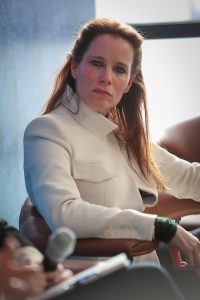
Florence Gab, Director of the Research Division at NATO Defence College in Rome, offered invaluable insights into NATO’s incorporation of gender perspectives across its operations. Gab emphasized the dual aspects of gender within NATO—both internally, among its workforce, and externally, in engagements with conflict-affected populations. She stressed the significance of gender diversity not only for ethical reasons but also for enhancing military effectiveness. By integrating diverse perspectives at every level, NATO aims to bolster its strategies and effectiveness in addressing security challenges.
“We can all do it. Find yourself somebody you can print and put on your wall as a reminder. If she could do it in the 20th century, then I can bloody do it in the 21st.”
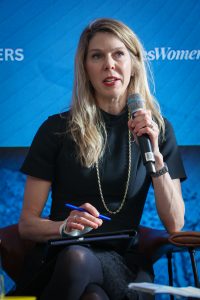 Kristen Edgreen Kaufman’s Perspective on City-to-City Diplomacy and Gender Equality:
Kristen Edgreen Kaufman’s Perspective on City-to-City Diplomacy and Gender Equality:
Kristen Edgreen Kaufman, Deputy Commissioner of Public-Private Partnerships and Economic Development in the New York City Mayor’s Office for International Affairs, underscored the pivotal role of city-to-city diplomacy in advancing gender equality. Kaufman shared examples of how New York City is leveraging global cooperation to economically empower women and combat gender-based violence. Initiatives such as the Venture Access Alliance and family justice centers not only disseminate best practices but also facilitate mutual learning with global counterparts to drive tangible progress in gender equality.
“Get involved at the local level. Put yourself into public service, into local government. You can make a huge impact.”
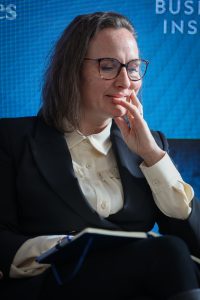 Insights on Cross-Border Collaboration for Peace and Security by Lucie Berger:
Insights on Cross-Border Collaboration for Peace and Security by Lucie Berger:
Lucie Berger, Ambassador of the European Union to the United Arab Emirates, emphasized the transformative potential of cross-border collaboration, particularly in fostering peace and security. Highlighting initiatives like the World Peace and Security Agenda, Berger stressed the importance of involving women in conflict resolution processes. She provided examples from the UAE, where efforts are underway to train women for peacekeeping missions and promote gender equality domestically and internationally.
Don’t let anyone discourage you. Whether you want to achieve a dream for yourself or if you want to support an idea, just go for it. Go for it, you know, better.”
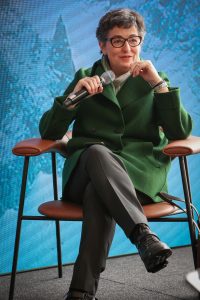
Arancha Gonzalez’s Perspective on Academic Institutions as Agents of Change:
Arancha Gonzalez, Dean of the Paris School of International Affairs at Sciences Po, discussed the role of academic institutions in promoting gender equality. Gonzalez highlighted the significance of education, research, and socialization in fostering gender equality within academia and society. She showcased initiatives at Sciences Po aimed at empowering women in leadership roles and advancing gender equality through mentorship and advocacy.
Double down on this idea that gender equality like climate change are issues where the entire international community has to be able to work together for the advancement of humanity, which is at the end of the day, what this is about.”
Strategies for Optimizing Public-Private Partnerships for Gender Equality:
The panelists deliberated on strategies for optimizing public-private partnerships to empower women in leadership roles and drive gender equality. Kaufman emphasized collaboration between government and private sectors in providing job training, mentorship, and access to capital for women entrepreneurs. Gab stressed the need to engage diverse stakeholders and encourage women to pursue careers in traditionally male-dominated fields such as security and defense.
Balancing Global Cooperation and Competition:
The panelists discussed the delicate balance between global cooperation and competition, particularly concerning advancing gender equality. Berger highlighted the necessity of safeguarding certain issues like gender equality and climate change from geopolitical rivalries. Kaufman underscored the positive impact of global economic competition in fostering the inclusion of women in the workforce and advancing gender equality. Driving Towards an Equality MoonshotThe imperative of advancing gender equality through global cooperation and collaboration became clear. From NATO’s endeavors to integrate gender perspectives into security operations to New York City’s initiatives to economically empower women, the panelists showcased diverse approaches and success stories in advancing gender equality. By harnessing the transformative power of women-led collaboration and cooperation, the world can strive towards achieving an equality moonshot—one where every individual, irrespective of gender, has equal opportunities to thrive and succeed.
Powerful Takeaways and Actions:
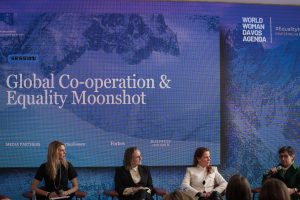
- Embrace Gender Diversity: Organizations should recognize the value of gender diversity not just for ethical reasons but also for improving effectiveness in addressing complex challenges.
- Leverage City-to-City Diplomacy: Cities can play a significant role in advancing gender equality through global cooperation and sharing best practices.
- Include Women in Conflict Resolution: Initiatives must actively involve women in conflict resolution processes to promote peace and security.
- Promote Education and Mentorship: Academic institutions should prioritize education, research, and mentorship programs aimed at empowering women in leadership roles.
- Optimize Public-Private Partnerships: Governments and private sectors should collaborate to provide resources and support for women entrepreneurs and professionals.
- Balance Cooperation and Competition: While competition is inevitable, critical issues like gender equality should be shielded from geopolitical rivalries.
- Commit to the Equality Moonshot: Every individual and organization should commit to advancing gender equality, striving for a future where everyone has equal opportunities to thrive.

